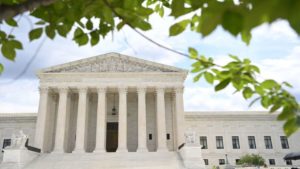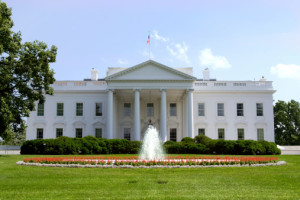
Texas judge halts Governor’s anti-trans order, EPA announces plan to reduce air pollution, and more…
IN THE NEWS
- A Texas judge continued to block Texas Governor Greg Abbott’s order that empowered the Texas Department of Family and Protective Services to investigate parents who allow gender-affirming care for their transgender children for child abuse. Texas appealed the court’s initial invalidation of the order, but the court again determined that the order was likely unconstitutional. The court will hear this case on July 11 to issue a final judgment on the order. Texas Attorney General Ken Paxton tweeted that despite the court’s ruling, he had appealed the case and investigations of families could proceed. Executive director of Equality Texas, Ricardo Martinez, responded that Texas could not legally continue investigations, and families still under investigation should “reach out to ACLU and Lambda Legal’s help desk immediately.”
- The U.S. Environmental Protection Agency (EPA) proposed a plan to cut interstate air pollution by reducing emissions from power plants. EPA’s plan calls for cutting the amount of ground-level ozone—otherwise known as smog—that power plants emit which travels downwind from one state to another. In its statement, EPA noted that its plan will help states meet interstate air pollution obligations that are already in place under the Clean Air Act. EPA Administrator Michael S. Regan stated that the plan will help states “meet air quality health standards, saving lives and improving public health in smog-affected communities across the United States.”
- U.S. Attorney General Merrick Garland issued new guidelines governing how the federal government should administer the Freedom of Information Act (FOIA). FOIA generally gives individuals the right to ask for federal government records, subject to certain limitations. The new guidelines call on the heads of departments and agencies to “apply a presumption of openness” and use “proactive disclosure of information” when administering FOIA. The guidelines, which are aimed at strengthening transparency within the federal government, also require agency and department heads to further eliminate obstacles that impede FOIA requests and disclosures.
- The Federal Communications Commission (FCC) implemented a rule that requires U.S. broadcasters to disclose when foreign governments purchase airtime on their stations. The FCC’s rule requires broadcasters to make on-air disclosures whenever “a foreign government, a foreign political party, an agent acting on behalf of such agencies,” or certain U.S. based foreign media outlets leases U.S. airtime. FCC chair Jessica Rosenworcel commented, “it is essential that audiences know when a broadcast station has been compensated to air content coming from a foreign government.”
- The U.S. Fish and Wildlife Service designated nearly 450 miles as “critical habitat” for the Big Sandy crayfish and the Guyandotte River crayfish, which are both previously protected species under the Endangered Species Act. The designation of an area as “critical habitat” means that federal agencies cannot take actions that would harm or change the area—but it does not impose any restrictions on private parties. Both crayfish species have been protected since 2016, and the designation of critical habitat for the species reportedly creates “an additional layer of protection.” The species’ environment has suffered “largely due to mountaintop removal and other forms of coal mining.” The newly designated critical habitat is located in Kentucky, Virginia, and West Virginia.
- The U.S. Senate unanimously voted to make daylight savings time permanent in the United States beginning next year. The bill now moves to the U.S. House of Representatives and the president for approval. If the bill passes, people in the United States would not need to change their clocks twice a year. Senator Marco Rubio (R-FL), who introduced the bill to the senate, commented that “this is an idea whose time has come.”
WHAT WE’RE READING THIS WEEK
- In a report, the State Energy & Environmental Impact Center at the NYU School of Law made recommendations to state attorney general offices about expanding environmental justice practices. The Center explained that governments at all levels should identify and map environmental justice communities—those that are “disproportionately burdened” by environmental abuses—and outlined improvements and successes in mapping technologies. The Center noted that state attorney general offices can and have created specific sections and initiatives that are exclusive to environmental justice work, such as the California Attorney General who helped create both a bureau for environmental justice and a law that requires identifying environmental justice communities. The Center also found that state attorneys general can find success with “multistate advocacy,” citing the efforts of five attorneys general who petitioned the U.S. Army Corps of Engineers to consider environmental justice concerns for certain Clean Water Act permits.
- In a report for the Center for American Progress, Ryan Richards, senior policy analyst for public lands, discussed the possible role of the U.S. Forest Service in achieving the Biden Administration’s conservation goals. Richards argued that the agency should develop a “comprehensive climate policy” that would create protections and provide for restoration of certain resources, such as degraded forests. He also provided recommendations, including designing new metrics to allow individuals and the government to “make smart investments in restoration” and determine which habitats to conserve. Richards concluded by highlighting that the U.S. Forest Service can be a key contributor to addressing the “dual crises of nature loss and climate change.”
- In an article in the Georgetown Journal of Legal Ethics, Susan Saab Fortney of Texas A&M University School of Law advocated a more targeted disciplinary approach to address discriminatory and harmful conduct in the U.S. legal field. Fortney emphasized that other countries, including Australia and Canada, use a “proactive management-based program” to regulate the legal profession, which directly addresses lawyer misconduct and provides harmed persons with alternative remedial avenues. Fortney called the current corrective model in the U.S. “reactive,” and recommended that U.S. regulators mimic the regulatory models found abroad to strengthen public trust in legal professionals.
FLASHBACK FRIDAY
- In an essay in The Regulatory Review, Alejandro E. Camacho, professor at the University of California, Irvine School of Law, and Robert L. Glicksman, professor at The George Washington University Law School, discussed how the original, congressionally-enacted statutes that empower agencies can determine the level of success that an agency ultimately has in adapting to change. As an example, Camacho and Glicksman highlighted how the National Forest Service Management Act of 1976 empowered the U.S. Forest Service with “expansive substantive legal adaptive capacity.” Camacho and Glicksman argued that the U.S. Forest Service has been a “pacesetter in climate change adaptation” as a result.



